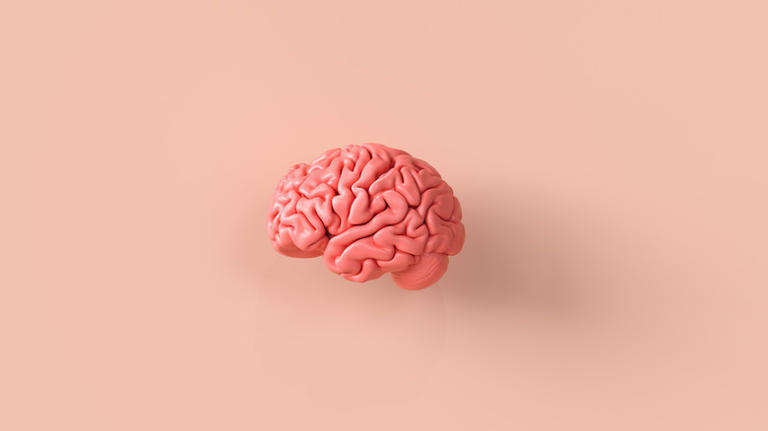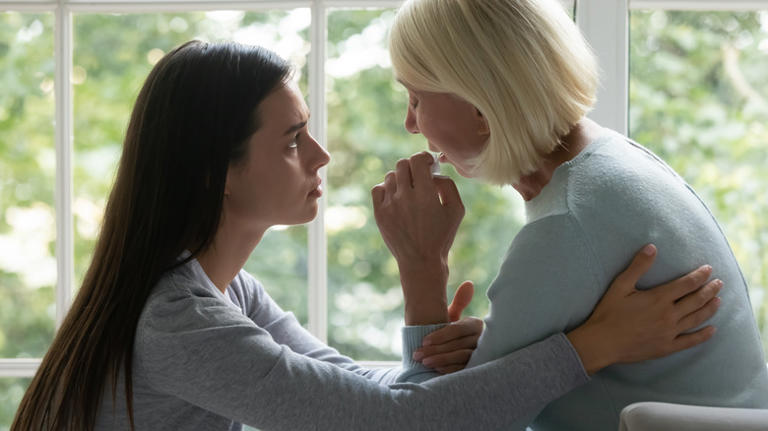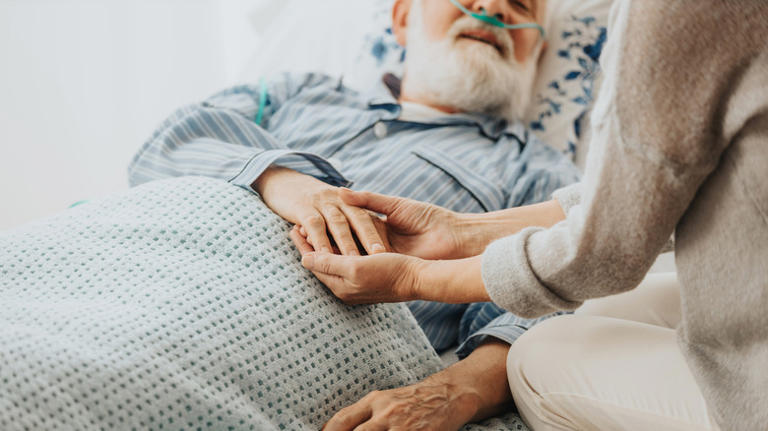What People visualize and hear Prior To Their Death – Exclusive
Most people would believe with the fact that among the more obscure aspects of existence is death. Although death is inevitable for everyone and everyone is a bit different, nobody really knows what happens when the moment we die.
Death is an event that is completely beyond our control. This realization is likely to create anxiety and fear about death in a lot of people. More than 19% of Americans said they are afraid of losing their life in a Chapman University survey. In addition, 38.1% of respondents expressed a fear of losing their own loved ones forever. If we understand the events that take place during our last moments then we can ease the pain of anxiety about death for most people and aid medical professionals in supporting families who are suffering from loss.
What Happens In The Brain When Someone Is Dying?

The people who are near the point of dying are mostly unconscious, with brief moments of consciousness left in the body as said by Dr. Malhotra explains to us. Scientists have started to study the brain’s activity before death, in the hope of finding answers to the mystery of near-death experiences. “Earlier this year, according to neuroscientists, the brain of a dying 87-year man exhibited rhythmic brain wave patterns that were similar to those seen during dreaming, memory recall, and meditation,” she explained.
“This study found evidence that the brain may stay active for a while and conscious after a person has passed away while going through vivid memories and flashbacks from the person’s life.” She thinks this might be the reason for near-death experiences that have been reported. the feeling of joy and peace as well as vivid memories.
We might never understand this circle of life but having the knowledge that a loved one has relived fond memories from their life before their death may provide greater solace to their family and friends during an especially painful time.
What Is The Last Sense To Go When Someone Dies?

If someone you love is on the verge of dying, most people are concerned about whether they are able to hear and understand them.
Dr. Malhotra firmly believes those who are dying to be able to hear and feel the presence of others who are around them, even though they’re unable to communicate. “According to a study which was published in 2020 where neuroscientists found that some people can still hear while in an unresponsive state, up to hours before they die,” she shared with us.
This is why she recommends that family members and friends only talk about matters they would like loved ones to be aware of and avoid such events that the loved ones didn’t want to hear. “This is often why I hold family meetings outside the room of a patient who is no longer able to interact,” she says.
The knowledge that your loved ones will be able to hear you be a source of comfort for the family members. “I also encourage them to hold their hand, tell them they are there and the things that matter most (I’m sorry, please forgive me, I love you, and thank you),” Dr. Malhotra explains.
What are the effects of these visions on the loved ones of someone who is dying?

The loss of a loved one to death can be a painful experience that can trigger overwhelming and confusing feelings of sadness. Dr. Malhotra shares how many of her patients feel confused and grief when their loved ones who died have visions as they believe that they’re being reunited with those they cherish.
“Since these visions are not easy to explain using science. she says. “In these instances, I often validate their feelings and share this is a common end-of-life experience for many.”
A few may be uncomfortable with the visions of their loved ones This is an appropriate reaction. People who are worried about their visions may seek help through counseling, support groups, or books. “In my own experience, I have counseled family members that if their loved one is comfortable and not bothered by the visions, to simply accept their experience and gently reassure them,” says Dr. Malhotra. “If the patient is agitated or distressed, however, medications can be used to help provide comfort.”
Because every person’s story is unique She emphasizes the importance of individual treatment and a keen understanding of the best ways to assist family members and patients in the process of dying.




